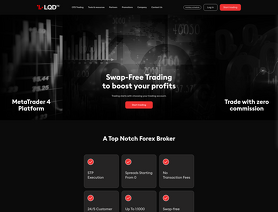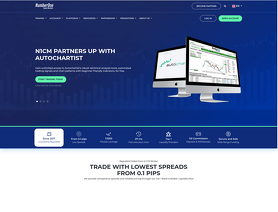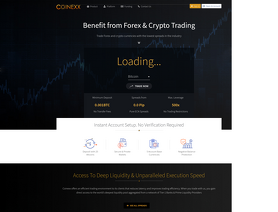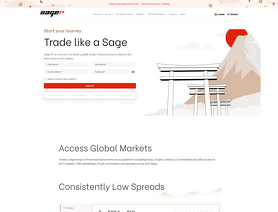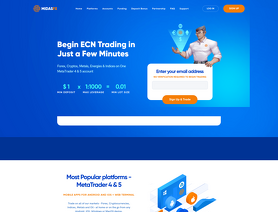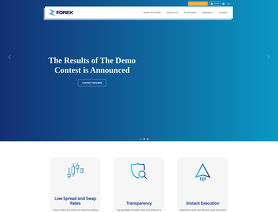Best Forex Brokers accepting US Clients.
The United States holds one of the strongest positions in the forex trading industry- thanks to its world leading economy and financial systems. However, it has some of the strictest demands on how the forex industry operates. US regulated brokers are very safe for client funds, but also have serious limitations on leverage and hedging.
Using Brokers Outside the United States.
Due to the very strict regulations requirements, as well as rules tightly controlling leverage, many US forex traders have chosen to skirt the rules and trade with offshore brokers. Also, a number of US brokers moved to offshore jurisdictions.
Many US traders have decided to escape the limitations by trading with offshore brokers. Doing this means traders won't be nearly as well protected by regulators, but the traders will have access to far higher leverage and fewer other restrictions.
Here is a list of popular offshore brokers that accept US clients:
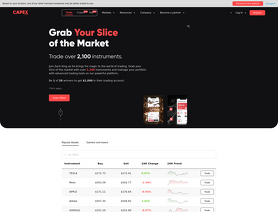
Capex.com
Regulations governing forex brokers and trader in the USA.
Forex trading is very popular in the United States. However, the government has set a number of regulations that seem to limit and complicate the trading possibilities. For instance, US-based forex traders are officially restricted from trading with brokers outside the country. This gives them the option to trade with brokers regulated by the US government or work with offshore firms willing to skirt or violate US regulations. It is possible to trading with offshore brokers, but traders should be very cautious in selecting such a forex broker because of the higher risk of being scammed.
Currently, two regulatory authorities in the United States oversee the trading and forex industry. These authorities are the National Futures Association (NFA) and Commodity Futures Trading Commission (CFTC). These two supervisory authorities regulate the trading brokers or financial service providers in the US. Their main responsibility is to ensure the forex market integrity, in addition to providing transparency and client protection.
Also, before any forex broker can legally operate in the United States, they are required to obtain a Retail Foreign Exchange Dealer (RFED) registration from the NFA.
Here is a list of popular brokers that are registered with the NFA:
How to start forex trading in the US.
The process of registering with a United States forex broker is almost the same as with any other country. Typically, forex brokers ask for the following details:
- Proof of identity- you can use your driver's license or passport
- Proof of residence- typically, you will need to provide a bank statement and or utility bill as it shows your current address
Now, after the verification of these documents, which usually doesn't take long, you will be able to start trading in your forex account.
The provisions of forex trading regulations in the US.
There are some restrictions that all NFA registered brokers must adhere to. In addition, the NFA expects the brokers to meet several requirements. The following are the most important requirements set by the NFA.
CFTC registration is mandatory
As said earlier, forex brokers in the US should be registered with the Commodity Futures Trading Commission and regulated by the National Futures Association. Now, after registration, brokers get a unique registration number. These registration numbers are displayed on the commission's online database, and anyone can access this database. So, before registering with any broker, traders should check if the broker is registered with the CFTC.
Capital requirements
The Capital requirements set by the NFA for US forex brokers differ greatly from the requirements set by other regulatory bodies in other countries. According to the NFA requirements, all US registered forex brokers must have a minimum capital of $20 million. This ensures that the brokers can sustain client positions without having to declare bankruptcy. Therefore, if a broker's liability exceeds $10 million, they must have 5% of that amount.
Hedging is prohibited
Some forex traders use some strategies to help them get better returns. Hedging, which is one of these strategies, helps to reduce the possible losses that a trader can incur. For instance, if a trader's sell order is not performing as expected, the trader can place a buy for GBP/USD.
So, why is hedging prohibited in the US? While hedging can protect forex traders in the US, regulators believe that it's a big disadvantage for forex traders because of the high trading costs and fees.
Leverage limits
Unlike in other jurisdictions, most forex brokers in the US don't have high leverage. Typically, forex traders look for forex brokers that provide high leverage since they can potentially maximize their profits. Now, this is a major reason for the success of this industry- forex traders don't need to have a lot of capital when beginning. However, brokers should note that higher leverage can lead to a higher loss.
Because of this, the NFA has set maximum leverage for US-based brokers. The NFA restricts US forex brokers to leverage of 50:1 on all major currencies (and less for pairs containing exotic currencies). This is one of the major reasons why most forex brokers in the US don't have high leverage.
Funds security
Lastly, the NFA controls the security of the traders' funds to make sure that they don't lose their money. The NFA checks to make sure that all forex brokers keep their clients' funds in a segregated bank account, one that is separate from the accounts the broker uses for operational expenses. This makes it very difficult for a broker to disappear with the client's funds if it goes bankrupt or decides to take the money and run.
All US regulated forex brokers have to display their NFA registration information on their websites. Therefore, you should make sure that you look out for this information and go to NFA BASIC to check the registration before opening an account with a US forex broker. Make certain that the registration is for an RFED (Retail Foreign Exchange Dealer) license. Many scam brokers display an NFA ID number that ties to an exempt organization. Exempt means that the company is NOT under NFA supervision.
Consequences of the US regulatory environment
The restriction on leverage and hedging drove many US clients to move their trading offshore. Additionally, the increased capital requirements and more burdensome reporting requirements caused many USA based forex brokers to shift their operations offshore.
US Forex Brokers FAQs
What's the minimum initial trading capital required by US forex brokers?
US forex brokers provide different accounts for different traders. So, the initial trading capital required depends on your preferred account. However, the minimum trading capital required by most USA forex brokers is in the $50-100 range.
Can non-US brokers accept clients from the US?
Officially, if a non-US broker is not registered with the National Futures Association, they accepting US clients would violate US regulations. In spite of this, many offshore brokers do accept US clients.
What payment options do US forex brokers provide?
The forex brokers in the United States provide a variety of different payment options, which include credit cards (MasterCard, Visa, and Union Pay) and bank wires.
Why should you trade with US regulated forex brokers?
The good thing about trading with US-based forex brokers is that they are tightly regulated by the NFA and the CFTC. That makes them reliable and safe to trade with. This registration assures US traders that the brokers are genuine, have a good track record, and clients can seek NFA protection in case any fraudulent activity occurs. Also, this means that in case the broker declares bankruptcy, clients will be unlikely to lose all of their money.
Where do I complain if I think a USA regulated broker scammed me?
First, try to discuss the issue with the broker. Misunderstandings happen all the time. Most of those can be resolved with a few phone calls, emails, or a live chat session. If that doesn't resolve the issue, tell everyone about the incident in a review and open a thread about it in the FPA's Scam Alerts folder. If the issue is major, you can CLICK HERE to contact the NFA and file an official complaint.
